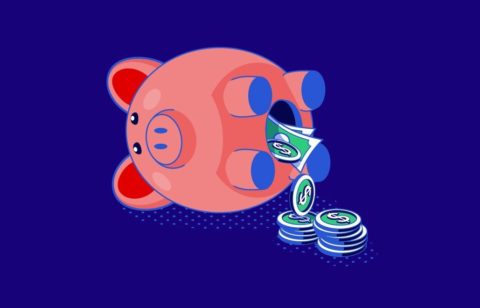When debt collectors are calling you at all hours of the day and night, you know it’s time to do something about your debts. It may not be your fault that you are so heavily in debt. You might be like the millions of other Americans and lost your job during the great recession. You might have suffered a serious accident or a calamitous illness. But none of this matters to the debt collectors. All they care about is transferring money from your pocket to theirs. Some of them can get downright nasty and as you may have already discovered, it’s almost impossible to evade them.
It can be tempting
It can be very tempting to get a debt consolidation loan to pay off your debts and get those collectors off your back. For example, if you owe $12,000, it would be very tempting to just borrow the $12,000 and pay off all those debts. You would certainly end up with a lower monthly payment and a lower interest rate. You would have to make only one payment a month – to the bank or credit union where you got the loan – instead of having to make multiple payments to your credit companies and other lenders.
If you can get the loan
The first thing you might discover about a debt consolidation loan is that you may not be able to get one. In fact, a general rule is that the deeper you are in debt the more difficult it will be to get a loan. Banks and credit companies are no fools. They’re not in business to loan money to people who are already having a problem with debt. There is an old saying that banks only want to lend money to people who don’t need it and there is more than a grain of truth in this.
The second thing that bankers won’t tell you
The second thing that a bank or credit union may not tell you is that if you’re heavily in debt, the only kind of loan you might be able to get is a secured loan. And in most cases, the asset you will need to pledge to get a secured loan will be your house. You will have to apply for either a second mortgage or a homeowner’s equity line of credit. Regardless of which of these you choose, you will be risking your house because if you were ever unable to make your payments, the lender could repossess it and you’d be out on the street.
Seven to 10 years
Third, you might be surprised to learn it could take as long as 7 to 10 years to pay back that debt consolidation loan. And that’s 7 to 10 years during which time you better not run any new debt or you might end up in as much trouble as before you got the loan.
It can cost you more
You will most likely have a lower interest rate with a debt consolidation loan than with your current debts. If you have credit card debt you may be paying as much as 20% APR or even higher. In comparison, you should be able to get a second mortgage or homeowner’s equity line o+9+f credit at 5% or less. However, if you do the math you’ll probably discover that the debt consolidation loan is costing you more because of the number of years required to pay it off. As an example of this, if you were to borrow $15,000 at 4.9% with a seven-year loan, it would end up costing you a total of $17,749.
Stay away from ARMs
Another fact you may not be told up front is the danger of an ARM or adjustable rate mortgage. The reason for this is because it could start at a nice interest rate of, say, 4% but then get adjusted upward dramatically after just a few short years.
Watch out for upfront fees
Some debt consolidation companies, especially those you find online, will charge big upfront fees or closing costs. You need to be careful to stay away from this type of loan because the money you pay in these fees could offset any savings you would get with a consolidation loan.





